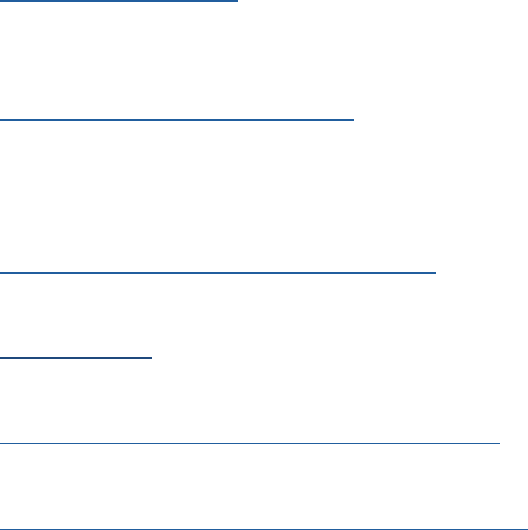
Page 1 of 25
MARYLAND DEVELOPMENTAL DISABILITIES ADMINISTRATION
Easy-to-Understand Guide to Services
May 2023
Information About This Guide
What is this guide about?
This guide has important information about the Maryland Developmental Disabilities
Administration. The Maryland Developmental Disabilities Administration is also called the DDA.
This Easy-to-Understand Guide to Services was written to be understandable to everyone. It
has the most important information you should know.
The DDA also has a longer guide called the Guide to Services for People with Intellectual and
Developmental Disabilities and Families. That guide has more information. Click here if you
want to read it.
What information is in this guide?
This guide will help you understand:
⮚ What is the DDA and how does it work? Page 2
⮚ Who can get DDA services and how do you apply? Page 4
⮚ When can you get DDA services? Page 7
⮚ What services does the DDA provide? Page 8
⮚ How are DDA services provided? Page 12
⮚ How do you make a plan for the services you need and want? Page 13
⮚ What are rights and responsibilities? Page 15
⮚ Where else can you go for support? Page 17
⮚ Important words to know Page 18
⮚ How to contact the DDA Page 24

Page 2 of 25
Important words are in bold.
They are also at the end of this guide in a list called Important Words to Know. You can go
there if you want to see what something means.
Want more information?
There is a lot more to know about the DDA and its services that is not in this guide.
If there is something in this guide you do not understand or you want more information, you
can talk to:
● Someone you know and trust. This might be a family member, friend, or someone else
who knows about the DDA.
● Your Coordinator of Community Services. Many people who apply for DDA services get a
case manager to help them. They are called Coordinators of Community Services, or
CCS. We’ll talk more about CCS later.
● Someone at the DDA. The DDA has offices in four (4) different parts of Maryland. They
are called Regional Offices. Click here for information about the Regional Office closest
to you. That information is also at the end of this guide.
If you cannot find someone to help you, try the DDA’s main office at:
410-767-5600 or 844-253-8694.
What is the DDA and how does it work?
What is the DDA?
The DDA is a State agency. It pays for services and supports for children and adults with
intellectual and developmental disabilities and their families in Maryland. People with
intellectual and developmental disabilities are also called people with IDD.
DDA services and supports are provided in people’s homes and in the community.
What does the DDA’s Developmental Disability category mean?
The Developmental Disability or (DD) category is for people who have a developmental
disability as described in Maryland State law. DD Eligibility means:
● You have a developmental disability. Examples can be intellectual disability, cerebral
palsy, and autism. There are many others;
● Your disability is a physical or mental disability, or both. You cannot just have a mental
illness;

Page 3 of 25
● Your developmental disability is severe and chronic. Chronic means that it will not end
or that it might start and stop during your life but does not go away;
● You will probably have your disability your whole life (that means it is chronic);
● Your disability started before you were 22 years old;
● You need support or services to live independently; and
● You need support and services that are planned and coordinated for you.
This category means you qualify for DDA services, and you will be provided with a Coordinator
of Community Services or CCS. More information about CCS is noted below in this guide.
Why does the DDA pay for services and supports?
The DDA wants people with IDD to be able to live, love, work, and play in the community - just
like people who do not have disabilities. Many people with IDD need some support to make this
happen.
Services and supports help people live as independently as possible at home and in the
community.
The DDA pays for services and supports that help people reach their goals. Goals are things you
want to happen so you have a good life. Some examples of goals are:
● Learning something new so you can be more independent.
● Getting a job so you have money to pay for things you want.
● Making new friends.
The DDA works to make sure that people with IDD:
● Are in control of their lives.
● Make decisions about the services and supports they get, with help if they want it.
How does the DDA pay for services and supports?
The DDA usually pays for services and supports with Medicaid money. You might know about
Medicaid already because many people with disabilities have Medicaid to pay for things like
doctor visits and medication.
Medicaid also pays for services that help people:
● Keep skills they already have,
● Learn new skills, or
● Get better at skills they need to live at home and in the community.

Page 4 of 25
When Medicaid pays for these services in a person’s home and community, it does it through a
Medicaid Waiver. A Medicaid waiver means you qualify for a type of Medicaid in the
community.
A Medicaid Waiver is an agreement between the State and federal government about:
● The kinds of services people can get,
● Who can provide the services, and
● How the services are provided to people.
There is more information about this later in the guide.
Who can get DDA services and how do you apply?
How do you ask for DDA services?
To ask for services, you have to apply. To apply, you fill out an application.
An application is a form where you give information about your disability and needs to the DDA.
These are the things you must do to apply for DDA services:
1. Fill out the DDA Application for Eligibility.
● You can get the application here. You can also call your DDA Regional Office to get
a copy.
● You can ask someone you know or someone at your DDA Regional Office to help
you fill out the application.
2. Find records, reports, and other information that help show you have a developmental
disability. This includes things like records from schools, doctors, and therapists. The
DDA calls this supporting documentation.
3. Send your application and records to the DDA.
The DDA uses the information to decide:
● If you are eligible for services. Eligible means you meet all of the rules to get services. It
means the DDA can give you services when it has money to pay for them.
● What services you can ask for.
● And how soon you need services.

Page 5 of 25
When can you apply for services?
You can apply at any age.
If you are 14-22 years old, the DDA wants you to apply while you are still in school.
This will help you get the services you need when you leave school.
What happens when you apply?
This is what happens after the DDA gets your application:
1. The DDA sends a letter within seven (7) days to let you know they got your application.
2. Someone from your DDA Regional Office or a Coordinator of Community Services
agency contacts you. Coordinators of Community Services are called CCSs. They help the
DDA figure out if you are eligible for services.
3. They look at your application and records and meet with you. They will ask questions to
understand your needs. This is called an interview.
4. They give the DDA information they learned about you at your interview. The person
who meets with you must interview you and send the information to the DDA no later
than 45 days after the DDA gets your application.
5. The DDA looks at all of this information.
● They decide if you are eligible for DDA services.
● If you are eligible, they determine your priority category based on State rules.
Keep reading to learn more about this.
6. The DDA sends you a letter about the decisions they made. This is called a DDA
eligibility determination letter. Call your DDA Regional Office if it has been more than
60 days since you sent in your application and you have not gotten your letter.
What are eligibility categories?
The DDA puts everyone who applies for services into a group. The groups are called eligibility
categories. The DDA follows rules when deciding what group to put you in.
There are three (3) DDA eligibility categories:
1. Developmental Disability or DD
2. Supports Only or SO
3. Not Eligible

Page 6 of 25
What are priority categories?
If the DDA decides you are eligible for services, it does not mean you will get services
right away. That is because the DDA does not have enough money to serve everyone
that needs support.
Some people have to wait. The DDA serves people with the greatest need first.
The DDA puts everyone who has to wait for services on a list. It is called the DDA
Waiting List. Everyone on the waiting list is put in a group based on how soon they need
services. These groups are called priority categories.
These are the four (4) priority categories:
1. Crisis Resolution
This is for people who need services now because they are in a crisis or have an
emergency. A crisis is a very bad or unsafe situation. Here are examples:
● You are being abused or neglected.
● You do not have any place to live.
● The person who takes care of you cannot meet your needs.
People in the Crisis Resolution category usually get services within two (2) days.
2. Crisis Prevention
This is for people who will be in crisis within a year if they do not get services or support.
You can be in the Crisis Prevention category for up to a year, but most people get
services in less than six (6) months.
3. Current Request
This is for people who want services now or in the next three (3) years but are not in
crisis. They do not meet the rules for Crisis Resolution or Crisis Prevention.
You can be in the Current Request category for up to three (3) years, but most people
get services in less than one (1) year.
4. Future Needs
This is for people who do not need services now but will need them in three (3) or more
years.

Page 7 of 25
Important!
Contact your DDA Regional Office if your contact information or big things change in your life.
The DDA will decide if your priority category should change so you can get services sooner.
What should you do if you disagree with the decisions the DDA made?
Talk with the CCS or DDA Regional Office staff that met with you. Tell them why you disagree
with the DDA's decision about your eligibility category or priority category.
They can help you ask the DDA to review your information to see if they will change their
decision. You will need to give the DDA more information to review about you and your
needs. This is called a Request for Redetermination.
If you ask the DDA to change their decision about your eligibility or priority and they disagree
with you, you can ask for a hearing. Your CCS, DDA Regional Office, or an advocate can help
you request a hearing.
A hearing is a meeting where someone listens to the DDA explain their decision. They also
listen to you or someone you want to advocate for you. This is a chance for you to explain
why the DDA should change its decision.
Your Eligibility Determination letter will have information about this.
When can you get DDA services?
When the DDA has money to pay for services for people in your priority category, they pick
people with the greatest need.
This is what happens when the DDA has money to pay for services for you:
1. Your CCS helps you fill out an application for the DDA Medicaid Waivers.
You must do this so the DDA can use Medicaid money for your services.
The DDA has three (3) different Waiver programs:
● Family Supports Waiver
● Community Supports Waiver
● Community Pathways Waiver
If you are eligible for the Waiver programs, the DDA picks the one that best fits your
needs. Your CCS can explain:
● Who is eligible for each Waiver.
● The difference between each Waiver.

Page 8 of 25
If you are not eligible for the Waiver programs, the DDA might have State funding to
pay for some services for you.
2. Your CCS works with you to develop a plan for services and supports you need and
want. The plan is called a Person-Centered Plan or PCP. You can ask other people to
help with your PCP. They are called your support team or team. The DDA must approve
your plan before you get services. There is more information about person-centered
planning later in this guide.
3. Your CCS and team help you decide how you want to direct your services, pick service
providers, and other supports to meet the needs described in your PCP.
4. Your CSS checks in to make sure you are happy with your services. They make sure your
services are meeting your needs. They help you make changes if needed.
How long can you get services?
You keep getting services each year as long as you are eligible for DDA Waiver services. Waiver
services stop if:
● You move out of State,
● You no longer need or want services, or
● You no longer meet the eligibility rules for the Waiver.
Important!
You will need to provide annual or updated financial documentation, complete an annual
person-centered plan, and be recertified to meet the Waiver rules. Financial documentation is
updated written information about how much money you have.
What services does the DDA provide?
The services you get are based on your needs and goals. You have choices about:
● The services you get,
● Who provides the services,
● When you get services, and
● Where you get services.

Page 9 of 25
The DDA pays for three (3) kinds of services. The DDA calls them:
• Day and Employment Services
• Support Services
• Residential Services
Keep reading for more information about each kind of service.
Day and Employment Services
To get Day and Employment Services, you must be:
● 18 years old or older, and
● No longer in high school
Day and Employment Services are services that support you during the daytime. The DDA refers
to these services as Meaningful Day.
Employment Services help you get ready to work, find a job, and do a good job at work.
Employment Services help you:
● Figure out what kind of job you would like.
● Learn new skills that will help you get ready to work.
● Find jobs that are right for you, apply for the jobs, and get ready to meet employers.
● Learn how to do your job if you are hired.
● Set up the support you need to do a good job. This includes learning how to get ready
for work and getting to your job.
● Deal with problems or issues at work, if there are any.
Employment services can also help you set up a plan to start your own business - if that is right
for you.
Day Services support you during the daytime if you are not working.
Day Services help you:
● Learn and use new skills.
● Participate in activities with other people.
● Participate in activities in your community.
Day Services can also be a program where you are with other people getting health
care, nursing, physical therapy, and other services. If you are in one of these programs,
you take part in different activities.

Page 10 of 25
Support Services
There are many kinds of Support Services to meet your needs. Support Services help you:
● Learn new skills.
● Be more independent at home and in the community.
● Be more active in your community.
● Find a place to live.
● Make changes to your home so you can be more independent and safer.
● Make changes to your car or van, so it is more accessible.
● Pay for and learn to use transportation to get to activities in the community like
work, shopping, and fun activities.
● Take care of your health needs.
● Develop self-advocacy skills.
● Make decisions and be in control of your services.
Support Services can also help your family support you by giving them:
● Information, training, and support.
● Respite care. Respite care is when someone provides your support for a short period of
time instead of your family. This gives you and your family a break.
Residential Services
Residential Services support you to live as independently as possible in the community.
There are different kinds of Residential Services. You and your team decide what works best for
you.
Residential supports can help you find:
● A place to live.
● Roommates.
● Support staff to help you learn and use skills you need to take care of yourself and your
home and be a part of your community.
You can get Residential Services in:
● A home you rent or own.
● A home your family rents or owns.
● A home another family rents or owns.
● A home a provider rents or owns.
Depending on your needs, you can:

Page 11 of 25
● Live alone.
● Live with family or friends.
● Live with a roommate that supports you and gets free rent instead of being paid.
● Live with support staff.
● Live with other people that get DDA support, along with support staff.
You can get support from:
● Someone that lives with you.
● Support staff that come to your home but do not live with you.
Important!
There are rules about who can get each DDA service and how the services work.
Your CCS and members of your team will give you more information.
They will help you decide what services are best for you. This will be based on what you need
and want.
Low Intensity Support Services
The DDA also has a program for people who do not get any Day Services, Employment Services,
Support Services, or Residential Services. It is called Low Intensity Support Services or LISS.
LISS serves:
● Children living at home with their families, and
● Adults with intellectual and developmental disabilities living in their own homes.
LISS helps you be more independent and a part of your community.
It helps with some of your needs.
LISS pays up to $2000 for services and other things to meet your needs.
Here are some examples of the kinds of things LISS pays for:
● Assistive Technology
● Childcare
● Changes to your home, car, or van to make it possible to get around safely
● Personal Care
● Respite. This support gives you and your family a break.
● Summer Camps
● Support to be a part of the community
● Training
● Transportation

Page 12 of 25
These are not the only things that LISS can pay for.
How do you apply for LISS?
You can apply for LISS two times each year - once in the summer and once in the winter.
If you are not picked in the summer, you can apply again in the winter.
The DDA does not have enough money to support everyone that needs and wants LISS.
More people apply for LISS than the DDA can help.
The DDA calls the process they use to pick who gets LISS the Random Selection process. This
means that everyone who applies has the same chance to be picked.
You can get information about LISS, including when to apply:
● On the DDA’s website,
● From your DDA Regional Office, or
● From a LISS provider.
Talk with your DDA Regional Office or a LISS provider to learn more about:
● Who can apply.
● When to apply. There are deadlines you must meet, or you will not have a chance to be
selected for LISS.
● How to apply.
● What LISS will pay for.
How are DDA services provided?
You can get Day and Employment Services, Support Services, and Residential Services in 2
different ways:
1. One way is to have a DDA service provider manage your services. This is called a
traditional service model.
● A service provider is an agency that has permission from the DDA to provide
services to people with IDD.
● Managing your services means the service provider hires your staff and makes
sure they provide your services the way you need and want.
Or
2. The other way is for you to manage your services. This is called a self-directed service
model.

Page 13 of 25
● You hire your staff and manage your services. This means you self-direct your
services.
If you want, you can have someone help you with this. They are called a Support
Broker and other team members.
● You have more control over how you use the money you get from the DDA to
pay for services.
You make a plan for how to spend the money. This is your budget.
An agency helps you with your budget and paying your staff. They are called a
Financial Management and Counseling Services agency or FMCS.
● You can hire professionals to provide your support. You can also hire your
parent, brother, sister, or child to provide some services.
Your CCS or DDA Regional Office can tell you:
● The DDA services you can self-direct,
● The services you can pay your parent, brother, sister, or child to provide using
your DDA budget, and
● Other important things to know about how services are provided.
How do you make a plan for the services you need and want?
When the DDA has money to give you services, you develop a plan. The plan is called a Person-
Centered Plan, or PCP. It is called this because it is all about what YOU want and need.
It is important to make a plan for getting the services and supports you need and want!
Getting help with your PCP
You get help from your CCS and anyone else you choose to develop your PCP. They are called
your support team or team.
If you have traditional services, team members include your CCS, service providers, and other
people who are important to you. This might be:
● Family members,
● Friends,
● Advocates, and
● Other people who want to support you.
For self-directed services, important team members include your:

Page 14 of 25
● CCS,
● Financial Management and Counseling Services agency,
● Support Broker, if you have one, and
● Other people you choose.
These are the steps you and your team take to develop your PCP
Step 1: Get ready to develop your PCP
Your CCS will talk with you and your team to get to know you. This includes things like:
● What is important to you,
● What you are good at, and
● What you need and want to have a good life, now and in the future.
Your CCS may also use planning tools to get information about your support needs and
interests.
Planning tools are lists of questions that help your CCS learn more about you.
Three planning tools are the:
● Integrated Support Star,
● Health Risk Screening Tool or HRST,
● Supports Intensity Scale
Your CCS will explain what they are about.
This information helps you and your team get ready to develop your PCP.
Step 2: Develop your PCP
You and your team meet to talk about how you can have the good life you want.
You talk about the services and support you need and want to make this happen. The services
you can get are based on your needs and goals. Services include supports from your family,
friends, community, and other programs.
Your CCS uses a DDA form to write down your plan. It covers things like:
● Your strengths,
● What supports you have from technology, family, friends, and community,
● What you would like to change or get better, and
● Other supports you need and want from your family, friends, and community.
You can let your team know if you want changes to your plan. Changes can be made at any
time.
Page 15 of 25
Step 3: Send your PCP to the DDA
Your CCS will send your PCP to the DDA. The DDA Regional Office reviews your PCP to make
sure it has all of the information it should. When the DDA approves your plan, it can pay for the
services described in the plan.
Step 4: Put your plan into action
You choose who will provide the services and supports described in your plan. Based on the
service model you choose, you can hire your own staff or a DDA provider. There are service
providers in each region of Maryland. Your CCS can give you information about them.
You get your services and work on the goals you set in your PCP.
Step 5: Check in to make sure everything is OK
Your CCS meets with you every three (3) months to make sure:
● You are happy with your services and the progress you are making on your goals.
● You are safe and healthy.
Step 6: Annual Update
You with the support of your team develop a new PCP each year. You go through these steps
every year to make sure you are working on the goals you want and getting the support you
need.
What are rights and responsibilities?
Everyone who gets services from the DDA has both rights and responsibilities.
It is important that you understand your rights and your responsibilities. Your CCS or
DDA Regional Office can explain your rights and responsibilities.
Rights are things you are allowed to do or have when you get DDA services. No one
should take those things away from you. For example, you have the right to:
● Ask the DDA to change your priority category if things change in your life.
● Choose who is a part of your support team.
● Change service providers if you are unhappy with the support you are getting.
These are just some examples.
If you feel people are not respecting your rights or you feel unsafe, tell someone right
away. Who you talk to is up to you. It could be anyone you trust, like:
● A family member or friend,
● Your CCS,
● Your Support Broker, if you have one,

Page 16 of 25
● Someone else on your team. or
● Your DDA Regional Office.
Responsibilities are what you, your team, and your CCS are supposed to do.
Your Responsibilities:
You with the support of your team:
1. Decide what you want your life to be like. This will help you and your team
develop a good Person-Centered Plan. A good PCP has the services and supports
you need to have a good life.
2. Plan for and develop your PCP.
3. Review your PCP every three (3) months to make sure your needs are being
met.
4. Pick a service model and service providers to provide your support. You make
the best choice based on what you need and want.
5. Make sure you are satisfied with the staff who support you.
6. Let your CCS and team know if you feel you are not getting the support you
need or if someone is treating you badly.
7. Be open to new ideas, changes, and learning some new skills.
8. Advocate for your rights. This means speaking up for yourself and standing up for
what you believe.
9. Develop a plan to make sure:
● You have people who can support you if your regular staff cannot come to work,
and
● You have a place to go if you have to leave your home for some reason. An
example might be losing your electricity in a storm.
If you self-direct your services, you also:
1. Develop a budget to pay for the services in your PCP.
2. Use the money in your budget for the services listed in your PCP.
3. Choose people or agencies to help you decide who to hire and what to pay for with your
budget.
4. Choose your Financial Management and Counseling Services agency. This is an agency
that helps with hiring, paying your staff or vendors, and reporting to taxes.
5. Keep track of what you spend. This is how you make sure the money in your budget
lasts all year, so your needs are met.
6. Interview, hire, train, and manage your employees and anyone else you pay for support.
This also includes firing them if they are doing a bad job.

Page 17 of 25
Your Coordinator of Community Services (CCS) responsibilities:
Your Coordinator of Community Services (CCS) is there to support you to:
● Make your own decisions,
● Stay healthy and safe,
● Be a part of the community, and
● Have the life you want.
Your CCS will:
1. Check to see what programs you are eligible for.
2. Complete and send applications, reports, your PCP, and other information to the DDA.
3. Help develop your PCP with you and your team.
4. Help you and your team figure out what your needs are.
5. Help you and your team decide on the best services and supports for you. This includes
DDA services and support from other places.
6. Make sure you are happy with your services and that your needs are being met.
If you self-direct your services, your CCS will also:
1. Work with you and your team to develop a budget that will support what is in your PCP.
2. Send your PCP to the DDA for review and approval.
3. Send your budget to your FMCS agency.
4. Help you and your team learn more about Support Broker and FMCS supports.
5. Help you set up meetings to change your PCP or budget when needed.
6. Help you keep track of your spending to be sure you have enough money in your budget
to pay for your services all year.
Where else can you go for support?
There are places to go for services and supports in addition to the DDA.
There are also other guides and information that could help you.
These are called resources.
Everyone has the right to access community, State, and federal resources. You might want to
check out other resources if:
● You get DDA services but could use other kinds of support,
● You are waiting for DDA services, or
● You are not eligible for DDA services.
Below are some of the resources people with disabilities and their families use. Click on the
links for more information. Your family, friends, CCS, and service providers can help you
understand these resources.

Page 18 of 25
1. Social Security Redbook is a helpful guide about employment supports for people with
disabilities. It covers support from the Social Security Disability Insurance (SSDI) and
Supplemental Security Income (SSI) Programs.
2. Plan to Achieve Self-Support (PASS) is a part of the SSI Program. It helps people with
disabilities go to work. PASS helps people with disabilities set aside some of their money
for things like supplies to start a business, school expenses, equipment and tools,
transportation, uniforms, and other things.
3. Supplemental Nutrition Assistance Program (SNAP) helps people with little money buy
food.
4. Maryland ABLE is a program that helps people with disabilities save money to meet
their needs without losing benefits like SSI and Medicaid.
5. Department of Human Services – Respite Program provides support for a short period
of time to give your family a break.
6. Department of Disabilities – Attendant Care Program pays for support staff at home,
school, work, or other places. This program is for adults ages 18-64.
Important words to know
These are important words that are in this guide.
Use this list if you want to remember what something means.
The page numbers tell you where to go in the guide to read more.
Apply (page 4): To get DDA services, you have to apply. To apply, you fill out an application. An
application is a form where you give information about your disability and needs to the DDA.
Coordinators of Community Services (page 17): These are people who are trained to help the
DDA figure out if you are eligible for services. Most people who are eligible for DDA services
also have a Coordinator of Community Services to help them develop their Person-Centered
Plan and make sure they get the services they need. Coordinators of Community Services are
also called CCS. The agencies Coordinators of Community Services work for are called
Coordination of Community Services agencies.
Day Services (page 9): Day Services support you during the daytime if you are not working.
Page 19 of 25
DDA Application for Eligibility (page 4): When you want services from the DDA, you start by
sending the DDA information about you and your needs. You put the information on a form
called the DDA Application for Eligibility. The DDA uses this information to decide if you are
eligible for services.
Developmental Disability category (page 2): This is a DDA eligibility category. DDA puts you in
this category if they decide you have a developmental disability. If you are in this category, you
have a lot of choices about what services you can get to meet your needs.
DDA eligibility determination letter (page 5): This is the letter the DDA sends you after you
apply for services and have an interview. The letter tells you if you are eligible for DDA services
and how soon they think you need services.
DDA Waiting List (page 6): The DDA Waiting List is a list of children and adults with intellectual
and developmental disabilities waiting for DDA community services. Everyone on the waiting
list is eligible for DDA services and is in a priority category.
Developmental disabilities (page 2): A developmental disability means:
● You have a developmental disability. Examples can be intellectual disability, cerebral
palsy, and autism. There are many others;
● Your disability is a physical or mental disability, or both. You cannot just have a mental
illness;
● Your developmental disability is severe and chronic;
● You will probably have your disability your whole life (that means it is chronic);
● Your disability started before you were 22 years old;
● You need support or services to live independently; and
● You need support and services that are planned and coordinated for you.
Eligible (page 4): Eligible means you meet all the rules for a DDA category or program.
Eligibility categories (page 5): The DDA puts everyone who applies for services into a group.
The groups are called eligibility categories. They are the Developmental Disability category,
Supports Only category, and Not Eligible category. The DDA follows rules when deciding what
group to put you in. Each of these groups is explained in this list.
Page 20 of 25
Employment Services (page 9): Employment Services help you get ready to work, find a job,
and do a good job at work.
Financial Management and Counseling Services agency (page 13): If you choose to self-direct
your services, you will have a Financial Management and Counseling Services agency help you.
This is an agency that helps you manage your budget and pay your staff. They are also called
FMCS.
Goals (page 3): Goals are things you want to happen so you have a good life. Some examples of
goals are:
● Learning something new so you can be more independent,
● Getting a job so you have money to pay for things you want, and
● Making new friends.
Guide to Services for People with Intellectual and Developmental Disabilities and Families
(page 1): This is a guide like this one but with more information.
Health Risk Screening Tool (page 14): This is a list of questions the DDA uses to learn about
your health needs. It is also called the HRST. It helps your team figure out what support you
need to stay healthy and safe.
Hearing (page 7): If you ask the DDA to change their decision about your eligibility or priority
and they disagree with you, you can ask for a hearing. A hearing is a meeting where someone
listens to the DDA explain their decision. They also listen to you or someone you want to
advocate for you. This is a chance for you to explain why the DDA should change its decision.
Interview (page 5): When you apply for DDA services, a Coordinator of Community Services or
a DDA Regional Office staff person meets with you. They ask questions to understand your
needs so the DDA can decide if you are eligible for services. The meeting is called an interview.
Page 21 of 25
Low Intensity Support Services (page 11): Low Intensity Support Services are services for
children and adults with IDD who do not get any Day, Employment, Support, or Residential
Services from the DDA. It is also called LISS. LISS pays up to $2000 for services and other things.
LISS helps people be more independent and a part of the community.
Managing your services (page 12): Managing your services means hiring your staff and making
sure they provide your services the way you need and want.
Maryland Developmental Disabilities Administration (page 1): The Maryland Developmental
Disabilities Administration is a State agency. It pays for services and supports for people and
intellectual and developmental disabilities and their families in Maryland. It is also called the
DDA.
Medicaid (page 3): Medicaid is a program that helps people pay for things like doctor visits and
medication. It also pays for services that help people keep skills they already have, learn new
skills, or get better at skills they need to live at home and in the community.
Medicaid Waiver (page 4): The DDA pays for most services with money from Medicaid. When
Medicaid pays for services in a person’s home and community, it does it through a program
called a Medicaid Waiver. The DDA has three (3) Waiver programs it uses to pay for services:
Family Supports, Community Supports, and Community Pathways.
Not Eligible category (page 5): This is a DDA eligibility category. If you do not meet the rules for
the Developmental Disability or Supports Only category, the DDA puts you in the Not Eligible
category. People not eligible do not get any DDA services.
Person-Centered Plan (page 7): Everyone who gets DDA services develops a Person-Centered
Plan with their support team. It is usually called a PCP. The PCP includes information on all the
services and supports you need and want to meet your goals.
Page 22 of 25
Priority categories (page 6): Everyone on the DDA Waiting List is put in a group based on how
soon they need services. The groups are called priority categories. There are four (4) priority
categories.
1. Crisis Resolution - This is for people who need services now because they are in a crisis.
A crisis is a very bad or unsafe situation.
2. Crisis Prevention - This is for people who will be in crisis within a year if they do not get
services or support.
3. Current Request - This is for people who want services now or in the next three (3)
years but are not in crisis. They do not meet the rules for Crisis Resolution or Crisis
Prevention.
4. Future Needs - This is for people who do not want services now but will need them in
three (3) or more years.
Random Selection (page 12): This is the process the DDA uses to pick who gets Low Intensity
Support Services. It means that everyone who applies has the same chance to get picked. The
DDA uses this process because it does not have enough money to support everyone that needs
and wants LISS.
Regional Offices (page 24): The DDA has offices in four (4) different parts of Maryland. They are
called Regional Offices. See the list at the end of this guide to get information about the
Regional Office you should contact.
Resources (page 17): Information, support, and services that might help you are called
resources. Many people who get DDA services also get help from other resources in the
community.
Request for Redetermination (page 7): If you disagree with the DDA's decision about your
eligibility category or priority category, you can ask them to review your information to see if
they will change their decision. This is called a Request for Redetermination.

Page 23 of 25
Residential Services (page 10): Residential Services support you to live as independently as
possible in the community. Residential services can help you find a place to live, roommates,
and support staff. The support helps you learn and use skills you need to take care of yourself
and your home and be a part of your community.
Responsibilities (page 6): Responsibilities are what you, your team, and your CCS are supposed
to do.
Rights (page 15): Rights are things you are allowed to do or have when you get DDA services.
No one should take those things away from you. For example, you have the right to ask the
DDA to change your priority category if things change in your life.
Self-Direct (page 13): Self-direct means you hire and manage your staff. You are in control of
your services.
Self-Directed service model (page 13): You can get DDA services in two (2) different ways. One
way is when you manage your services. A service provider does not manage them. You can get
help from a Support Broker to do this if you want. You have more control over how you use the
money you get from the DDA than you would if you used a traditional service model.
Service provider (page 12): A service provider is an agency that has permission to provide DDA
services to people with intellectual and developmental disabilities.
Support Broker (page 13): You can choose to have a Support Broker if you self-direct your
services. A Support Broker helps you hire your staff and manage your services.
Supporting documentation (page 4): Supporting documentation is records, reports, and other
information that help show you have a developmental disability. This includes things like
records from schools, doctors, and therapists. You give these to the DDA when you apply for
services.
Supports Intensity Scale (page 14): This is a list of questions used to learn about your support
needs and interests. It is also called the SIS. It helps you and your team develop your Person-
Centered Plan.

Page 24 of 25
Supports Only category (page 5): This is a DDA eligibility category. If you have a disability that is
likely to last your whole life, but you do not meet all the rules for the Developmental Disability
eligibility category, the DDA puts you in the Supports Only category. You can only get Support
Services from the DDA when it has money to serve you.
Support Services (page 10): There are many kinds of support services to meet your needs.
Support Services help you learn new skills, be more independent, and be active in your
community.
Support team (page 13): The people who help you develop and work on your Person-Centered
Plan are called your support team or team. This includes anyone you choose. Examples of team
members are your family, friends, CCS, service providers, and other people you want to help.
Traditional service model (page 12): You can get DDA services in two (2) different ways. One
way is to have a DDA service provider manage your services. This is called a traditional service
model.
Do you need help understanding something in this guide
or have questions?
If you have a Coordinator of Community Services, they can help.
DDA Regional Offices are also there to help!
These are the DDA Regional Offices:
If you live in Anne Arundel, Baltimore, Howard or Harford County, or Baltimore City
Central Maryland Regional Office
410-234-8200
Free long-distance call: 877-874-2494
Maryland Relay: 800-735-2258

Page 25 of 25
If you live in Caroline, Cecil, Dorchester, Kent, Queen Anne's, Somerset, Talbot, Wicomico, or
Worcester County
Eastern Shore Regional Office
Telephone: 410- 572-5920
Free long-distance call: 888-219-0478
Maryland Relay: 800-735-2258
If you live in Calvert, Charles, Montgomery, Prince George's, or St. Mary's County
Southern Maryland Regional Office
Telephone: 301-362-5100
Free long-distance call: 888-207-2479
TDD: 301-362-5131
If you live in Allegany, Carroll, Frederick, Garrett, or Washington County
Western Maryland Regional Office
Telephone: 301-791-4670
Free long-distance call: 888-791-0193
Maryland Relay: 800-735-2258
